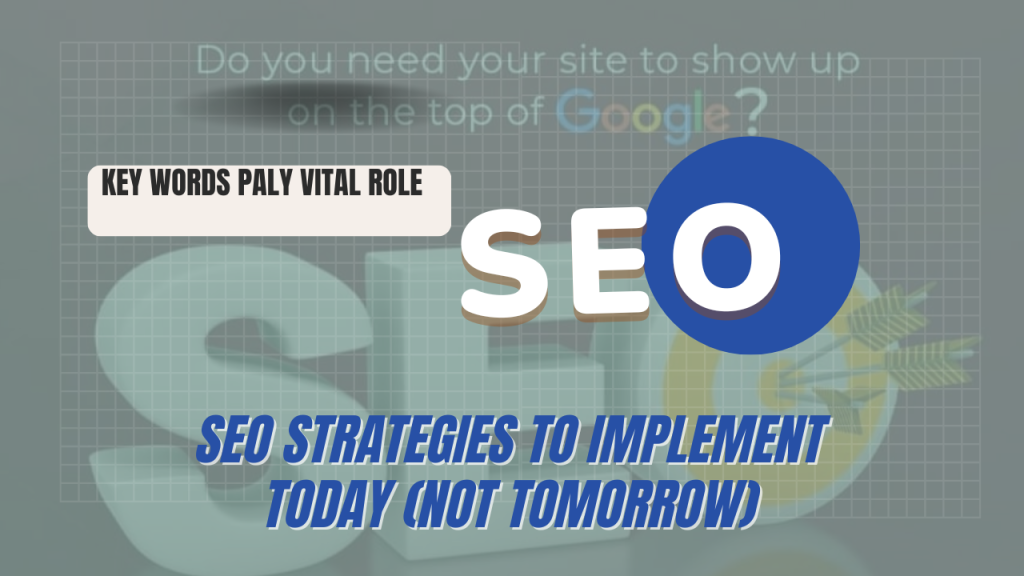
Menu


Conduct keyword research: Research and identify the most relevant and popular keywords for your website. Use those keywords in your website content, meta tags, and other on-page elements
Optimize website structure: Ensure that your website is well-structured and easy to navigate. Use clear and concise URLs, and organize your content into categories and subcategories.
Create quality content: Develop high-quality, relevant, and engaging content that provides value to your audience. Ensure that your content includes relevant keywords and is optimized for search engines.

Keywords plays vital role in SEO
Optimize meta tags: Use descriptive and relevant meta tags, including title tags and meta descriptions, to help search engines understand the content of your website.
Build high-quality backlinks: Build high-quality backlinks to your website from other reputable websites. This helps to establish your website’s authority and credibility in the eyes of search engines.
Optimize for mobile devices: Ensure that your website is optimized for mobile devices, as more and more people are accessing the internet through their mobile devices.
Use social media: Use social media platforms to promote your website and its content. This can help to increase traffic to your website and improve your search engine ranking.
Optimize your images by compressing their size and using descriptive alt tags. This helps search engines understand what the image is about.
At least to get top ranking in Google it will take 3 to 6 months need to do lot research but once than no need to invest more in ADS
se header tags (H1, H2, H3) to organize your content and make it easier for search engines to understand the structure of your webpage.
fast-loading website is important for SEO. Use tools like Google Page Speed Insights to identify areas for improvement and optimize your website's speed.
Focus on user experience: User experience (UX) is an important factor in SEO. Ensure that your website is easy to use, navigate, and provides a good experience for your users.
Use internal linking: Internal linking helps to establish the structure of your website and helps search engines understand the importance of different pages on your website.
Use schema markup: Schema markup is a code that you can add to your website to help search engines understand your content better. It can improve your website’s appearance in search results.
Monitor your website’s performance: Use tools like Google Analytics to monitor your website’s performance and identify areas for improvement.
Remember that SEO is a long-term strategy, and it takes time and effort to see results. By implementing these tips and continuously optimizing your website, you can improve your website’s search engine ranking and drive more organic traffic to your site.

We will provide services or trailing you and help you achieve your business goals.
At Digital Manifest, we can help you every step of the way. Join our family and build your confidence for the growth and success What are you waiting for? Take the first step today.